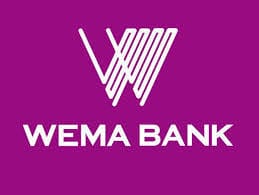Business
The Rise of Impact Investing: Wema Bank Green & Gender Financing Drive in Focus

The Rise of Impact Investing: Wema Bank Green & Gender Financing Drive in Focus
The deployment of funds into investments that generate a measurable and beneficial social or environmental impact alongside a financial return on investment (UNDP).
The term ‘Impact Investing’ has gained increasing recognition in recent years across regional and global spheres and sectors.
Following growing awareness of the limitations of corporate social responsibility (CSR) activities in addressing societal and economic concerns, thought leaders and drivers of sustainability across sectors, industries and nationalities have shifted the focus to creating better avenues for measurable, positive socio-economic impact.
Impact investing relates to the more measurable initiatives, policies and procedures set in place to provide long-term solutions to the socio-economic inequalities that affect modern societies and economies. This is further exemplified by the imposition of new criteria for measuring the effectiveness of social and sustainability initiatives across all areas of materiality towards the overarching need for the achievement of the Sustainable Development Goals by 2030.
Renewable energy and gender financing are two major focus areas of the impact investing movement with the global Net-Zero Emissions commitments signed on by over 140 countries to achieve carbon neutrality and the Gender 2x Challenge commissioned by the G7 summit in 2018 as a bold commitment to encourage financial and development finance institutions and the broader private sector in women across the world. These two areas have specific goals of preserving climate energy levels below 1.50C and bridging the gender equality gap respectively.
Wema Bank, a leading organization in the Nigerian sustainability space, is not behind the times with respect to the impact investment agenda with a focus on innovative financing and catalytic funding.
As far back as 2018, the Bank expanded its socio-economic focus beyond the limited scope of Corporate Social Responsibility (CSR) and adopted the Corporate Social Investment (CSI) policy as the strategy for achieving the sustainability vision of providing solutions for societal impact.
All social impact initiatives championed by the Bank cut across five core Corporate Social Investment pillars namely; Economic Empowerment, Education, Environment, Finance & Health. Over 500,000 beneficiaries across the nation have been impacted so far.
In keeping with the rise of impact investing especially along the global Green Energy and Gender Financing focus areas, Wema Bank has the following initiatives targeted at both areas of materiality:
Green Finance Facility – There is a general understanding by the leadership of the Bank that financing choices tie directly to the necessary transition to a greener and more sustainable economy. In pursuit of the drive to build climate resilience through the financing of adaptation measures, the Bank launched a Green Energy Finance Facility to enable SMEs and individuals reduce their emissions through power generation. The facility provides opportunities for SMEs to access up to N10million for renewable energy solutions in their business operations and processes.
Sustainable Finance – Wema Bank is committed to the systemic reduction of financed emissions through reduced lending to high climate risk sectors and promoting investment in more sustainable segments of the economy such as renewable energy, waste management, gender finance, smart agriculture amongst others. About N50billion has been invested in sustainable businesses so far with enhanced incentives for the adoption of sustainable business practices promoted through outlets such as the Vendors Environmental & Social Forum, SME Business School, webinars and bankwide sustainability training courses amongst others.
SARA by Wema: The Bank’s proposition for women was established to provide gender-targeted solutions across the workplace, community and marketplace segments. In response to the AfDB report of a $42billion gender financing gap and the World Economic Forum estimate of 136 years to bridge the gender equality gap, SARA by Wema has led diverse empowerment initiatives to promote gender finance. In alignment with the Gender 2x Challenge commitment to promoting women-owned/women-led businesses, Wema Bank has provided over N58.9billion uncollaterized loans to women MSMEs across the nation through the SARA proposition. This is a direct solution provided by the Bank to the access to finance problem and lack of collateral for accessing loans highlighted as some of the major obstacles encountered by women businesses.
Over 45,000 women have also benefitted from the diverse access to market programs such as online and physical trade fairs. SARA by Wema also champions training programs and seminars as well as skill acquisition workshops to promote business growth and entrepreneurial success for women businesses.
This is further bolstered by the provision of business startup kits and grants for over 30,000 women in the Nigerian SME sector.
UN-WEP Commitment: In November 2021, Wema Bank committed to the United Nations Women Empowerment Principles targeted at offering guidance on how to empower women in the workplace, marketplace and community. Since adoption of the 7 principles, diverse initiatives and policies have been implemented to promote the work towards the achievement of Sustainable Development Goal 5 – Gender Equality. A clear example of the foregoing is reflected in the update to the Bank’s procurement strategy to provide priority to female-owned businesses on the Bank’s supply chain in alignment with UN-WEP principle 5 – Enterprise Development, Supply Chain & Marketing Practices. The Bank has also introduced vendor categorization and tracking for seamless onboarding processes to ensure even more female representation on the supply chain.
Gender financing and the need for sustainable business practices are also emphasized for all the Bank’s vendors and suppliers at the annual Vendors Environmental and Social Forum.
In further alignment with the United Nations Women Empowerment Principles – Principle 1 – Establish High-level Corporate Leadership for Gender Equality, the Bank appointed its first female Chairperson – Dr. Oluwayemisi Olorunshola – in June 2023.
This is yet another bold step in the Bank’s path to the achievement of gender equality and equity. Women empowerment in the workplace is also promoted through the Wema Women Network – the internal structure for female employees across all cadres and levels within the Bank.
The Wema Women Network charter objective of empowering Wema women to become achievers in their career and personal lives is continually driven through growth and development initiatives such as quarterly connect sessions and workshops, mentorship opportunities through the internal Big Sister Program, career development and etiquette trainings, fitness programs amongst others.
Youth Empowerment: Youths form the majority of the Nigerian population with 70% under the age of 30. They also constitute the primary drivers of digital innovation and other socio-economic and environmental solutions targeted at specific societal issues. This is further evidenced by the impressive volume of fintechs, ed-techs, health-techs and other solutions making a significant impact across the nation and African continent.
Wema Bank is deliberate about promoting youth innovation and empowerment and has consistently led the drive starting with the launch of ALAT – Africa’s first digital banking platform with over 2.1 million active customers transacting daily. Not an institution to rest on its oars, Wema Bank also launched the ALAT x FGN partnership in 2023. In partnership with the Federal Government of Nigeria, Wema Bank launched the Digital Skillnovation Program for MSMEs through which digital hubs will be established in 15 states across the country as innovation centers equipped with advanced technology for optimal impact.
The Bank’s youth empowerment drive also continues with a partnership with the Small and Medium Enterprise Development Agency (SMEDAN) for capacity-building exercises on solar installation and sustainable entrepreneurship for Nigerian MSMEs. These Solar Powered Hubs include locations across all regions in the country to promote solar power transition and adoption as part of efforts towards achieving the national 2060 net-zero emissions target.
The above and many more provide proof of Wema Bank’s immense contribution and participation in the global drive for promoting impact investing. Impact investing is the way to go in ensuring sustainable finance and providing a positive impact across the environmental, social, economic and governance pillars of sustainability.
As the world draws closer to the 2030 Agenda timeline, it is important, now more than ever, for all players to get on board in shedding the traditional financing measures causing more harm than good and promote the triple bottom line – People, Planet and Prosperity through impact investing and sustainable finance.
Impact investing provides a business unusual approach to solving socioeconomic and ecological problems and ensures the positive impact is driven to the last mile. In this aspect, Wema Bank’s commitment to empowering lives through innovation and providing solutions for societal impact continues to ring true.
Towards the establishment of a better world, Wema Bank is a stellar example of a business that seeks to do well by doing good through the creation of useful solutions to meet the dynamic needs of the populace with Initiatives centred on social equity and diversity, empowerment, hybrid working models and sustainable business practices.

















